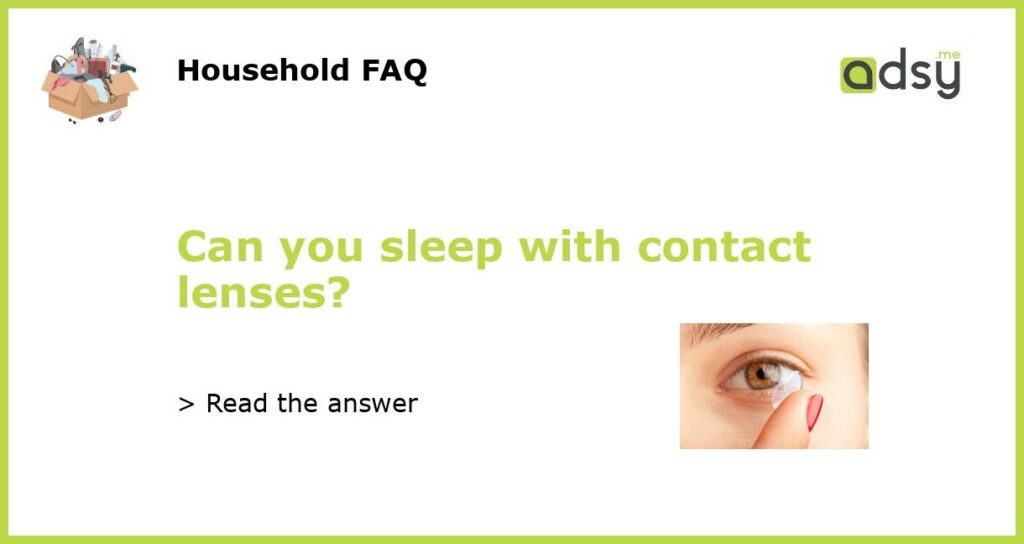Yes, you can sleep with contact lenses, but it’s not recommended
Many people wonder whether it is safe to sleep with contact lenses. While it is possible to do so, eye care professionals generally advise against it. There are several reasons why sleeping with contact lenses can be risky and potentially harmful to your eyes.
Risk of eye infections
One of the biggest concerns with sleeping in contact lenses is the increased risk of eye infections. When you sleep with your lenses on, your eyes are closed for an extended period, restricting the flow of oxygen to your cornea. This reduction in oxygen supply creates an environment where bacteria and other microorganisms can thrive, increasing the chances of developing an infection.
Corneal hypoxia
Corneal hypoxia is a condition that occurs when the cornea does not receive enough oxygen. When you wear contact lenses, especially overnight, the lenses can hinder the passage of oxygen to the cornea. This deprivation of oxygen can lead to corneal swelling, blurred vision, and discomfort. Prolonged corneal hypoxia can even cause long-term damage to the cornea.
Dryness and discomfort
Another common issue people face when sleeping with contact lenses is dryness and discomfort. During sleep, your eyes naturally produce fewer tears, which can lead to dryness. Contact lenses can exacerbate this issue as they can act as a barrier and prevent the tears from properly moisturizing your eyes. Dryness can cause irritation, redness, and a gritty feeling in the eyes.
Increased risk of complications
Wearing contact lenses for extended periods, including overnight, increases the chances of developing complications such as corneal ulcers, corneal abrasions, and giant papillary conjunctivitis. These conditions can be painful and may require medical intervention to resolve. Therefore, it is essential to follow proper contact lens hygiene and avoid wearing them while sleeping to minimize the risk of complications.
In conclusion, although it is technically possible to sleep with contact lenses, it is not recommended by eye care professionals. Sleeping with contact lenses increases the risk of eye infections, corneal hypoxia, dryness, and discomfort. It also raises the likelihood of experiencing complications such as corneal ulcers and abrasions. To maintain optimal eye health and reduce the chances of developing these issues, it is best to remove your contact lenses before sleeping and follow proper contact lens hygiene practices.






